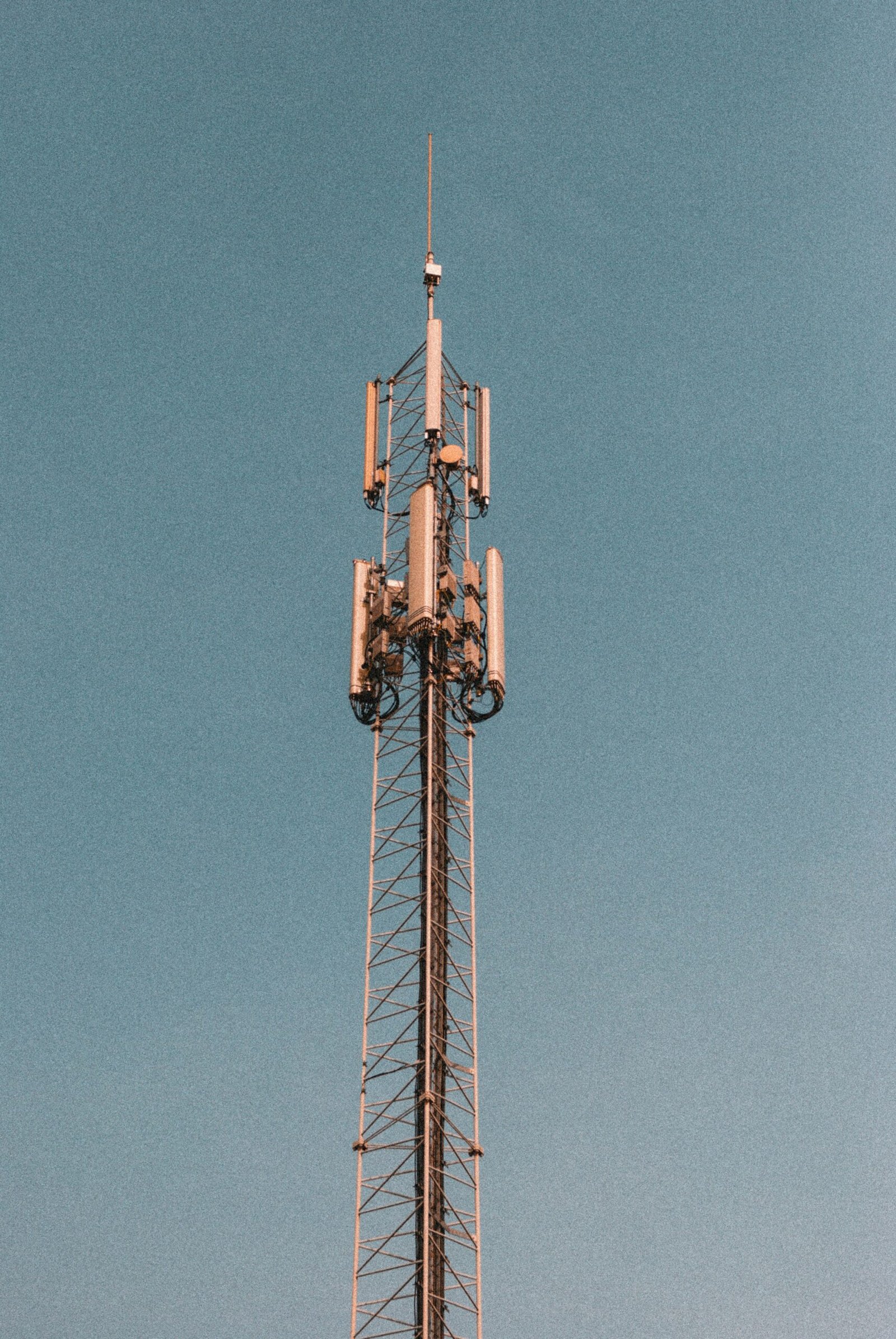Exploring the Benefits of 5G Home Internet: Why Verizon Leads the Way
Introduction to 5G Home Internet
5G home internet represents a significant leap forward in wireless technology, offering transformative enhancements in speed, latency, and reliability. Unlike its predecessors, 5G is designed to cater to the growing demands of our increasingly connected world. With its advanced infrastructure, 5G home internet provides faster download and upload speeds, which dramatically enhance user experiences for functions such as streaming high-definition content, engaging in remote work, and participating in online gaming.
A key distinguishing factor of 5G compared to previous generations is its substantially reduced latency. Latency refers to the time it takes for data to travel from one point to another, and lower latency means quicker response times. For everyday home internet use, this improvement translates into smoother video calls, more responsive cloud services, and a more seamless interaction with smart home devices. This efficient performance is pivotal in improving the overall quality of digital experiences.
Reliability is another cornerstone of 5G technology. The advanced network architecture of 5G reduces signal disruptions and guarantees sustained internet performance even during peak usage times. This stability ensures that households with multiple devices can operate smoothly without frequent service interruptions. The robust nature of 5G networks satisfies the modern need for constant, dependable connectivity across various applications and devices.
In a broader context, 5G technology is not just a step forward for consumer internet but a foundational element for future technological advancements. It supports the emergence of innovative applications such as the Internet of Things (IoT), autonomous vehicles, and virtual reality (VR), all of which demand high-speed, low-latency connectivity. As technology continues to evolve, the importance and prevalence of 5G home internet will only increase, showcasing why it is a crucial component in the ongoing journey toward a more interconnected world.
Key Benefits of 5G Home Internet
5G home internet represents a significant leap forward in technology, bringing numerous advantages that can transform daily digital experiences. One of the most prominent benefits is the ultra-fast download and upload speeds. Unlike previous generations, 5G can support speeds upwards of 1 Gbps, allowing consumers to download large files, stream high-definition videos, and participate in immersive virtual activities with minimal buffering. This accelerated speed ensures that even data-intensive tasks are completed swiftly and efficiently.
Another considerable advantage of 5G home internet is its reduced latency. Latency, often referred to as lag, is the delay before data transfer begins following an instruction for its transfer. In the context of 5G, latency can be reduced to as little as 1 millisecond, making real-time applications more responsive. This is particularly beneficial for activities such as online gaming and live video conferencing, where split-second interactions are crucial.
Increased bandwidth capacity also sets 5G apart. This means that more devices can connect to the internet simultaneously without a decline in performance. Households equipped with numerous smart home devices, including security cameras, smart thermostats, and voice assistants, will find that 5G sustains consistent connectivity and functionality. This is essential as the ecosystem of the connected home continues to grow.
Moreover, 5G’s enhanced reliability cannot be overstated. Its robust infrastructure is designed to withstand heavy traffic, reducing network congestion and ensuring a stable connection even during peak usage times. For those working remotely, attending virtual classrooms, or streaming high-density content, this reliability translates into fewer interruptions, higher productivity, and an overall seamless digital experience.
Finally, 5G home internet supports advanced applications such as augmented reality (AR) and virtual reality (VR), which require substantial data transmission capacities. Users engaging in AR/VR activities for gaming or professional purposes, such as virtual meetings and training simulations, will find these experiences significantly enriched through the capabilities of 5G.
In summary, the enhanced speed, reduced latency, added bandwidth, and improved reliability of 5G home internet collectively foster a more efficient and enjoyable digital environment, making it an invaluable asset for modern households and paving the way for future technological advancements.
Comparing Verizon’s 5G with Competitors
When it comes to 5G home internet, Verizon sets itself apart from other major providers through a combination of extensive coverage, robust speed, unwavering reliability, competitive pricing, and high levels of customer satisfaction. With an ever-expanding network, Verizon’s 5G service is increasingly available across numerous cities and regions, providing a wider coverage area compared to many competitors. This geographical advantage ensures that more users can access high-speed internet, irrespective of their location.
Speed is a critical factor in assessing the quality of 5G home internet. Verizon consistently demonstrates superior performance, delivering higher download and upload speeds, thus ensuring a smooth, uninterrupted online experience for activities such as streaming, gaming, and remote work. When pitted against other providers, data from various speed tests often showcase Verizon outperforming rivals in both peak and average speeds.
Reliability is another hallmark of Verizon’s 5G service. The company employs advanced technology and maintains stringent standards to minimize outages and latency issues. This commitment to reliability often translates into a stable internet experience, even during peak usage times. In contrast, some competitors may struggle with consistency, particularly in densely populated areas.
On the pricing front, Verizon offers competitive plans that strike a balance between cost and value. While other providers might lure customers with low initial rates, Verizon focuses on transparent pricing without hidden fees, providing a clear cost-benefit proposition over time. This approach fosters trust and satisfaction among users who appreciate predictability in their billing.
Customer satisfaction remains a pivotal area where Verizon excels. Based on various surveys and reviews, Verizon frequently garners positive feedback for its customer service, support, and overall 5G performance. Additionally, unique features such as seamless integration with smart home devices and innovative network management tools provide added benefits, further enhancing the user experience.
Impact on Remote Work and Education
As remote work and online education become an integral part of everyday life, the demand for reliable, high-speed internet has never been greater. Verizon’s 5G home internet offers a transformative solution that addresses the critical needs of both remote workers and students.
One of the primary benefits of Verizon’s 5G home internet is its high-speed connectivity, which is crucial for seamless video conferencing. With traditional internet services, remote workers often face issues such as lag, poor video quality, or unexpected disconnections during important meetings. Verizon’s 5G technology provides a stable and robust connection, ensuring smooth and uninterrupted video conferencing, which is essential for effective remote communication and collaboration.
Moreover, the ability to transfer large files quickly is another significant advantage. Many remote tasks involve sharing and receiving substantial documents, multimedia files, and other data-intensive content. The enhanced bandwidth of Verizon’s 5G home internet facilitates the swift upload and download of large files, which can significantly boost productivity and reduce downtime. For students, this means faster access to online resources, assignment submissions, and digital libraries, making the learning process more efficient and streamlined.
Collaborative tools, such as cloud-based platforms and real-time editing applications, are pivotal in both remote work and education settings. These tools require a robust internet connection to function optimally. Verizon’s 5G network enhances the performance of such tools, allowing for more efficient teamwork and real-time collaboration across different locations. This can lead to improved project management and more dynamic interaction among team members or classmates.
Furthermore, Verizon’s 5G home internet addresses common connectivity issues such as network congestion and slow speeds during peak times. This is particularly important in households with multiple users, where simultaneous usage of internet-intensive applications can often lead to reduced performance. By leveraging the advanced capabilities of 5G, Verizon ensures a consistent and high-quality internet experience, enabling multiple users to engage in remote work, online learning, streaming, and gaming without compromise.
In conclusion, Verizon’s 5G home internet provides the necessary infrastructure for an efficient and productive remote work and educational environment. Its high-speed, reliable connectivity supports essential activities such as video conferencing, large file transfers, and collaborative tools while mitigating common connectivity issues, thereby enhancing the overall user experience.
Application in Smart Homes
The evolution of smart homes has been significantly influenced by advancements in internet technology, and the advent of 5G home internet marks a pivotal step forward in this journey. As the capabilities of smart devices expand, a robust and speedy network becomes indispensable. This is where Verizon’s 5G home internet comes into play, providing the necessary infrastructure to support a plethora of connected devices seamlessly.
One of the standout aspects of 5G technology is its lightning-fast speeds and low latency, which are crucial for the smooth operation of smart home systems. Smart thermostats, for instance, rely heavily on real-time data to adjust home temperatures automatically and efficiently. With Verizon’s 5G home internet, these devices can communicate more effectively, leading to optimized energy consumption and consequently, cost savings for homeowners.
Security systems, similarly, benefit greatly from enhanced connectivity. Smart cameras, motion sensors, and alarm systems require instantaneous data transfer to function optimally. The robust network provided by Verizon ensures that these security features can function without delays or interruptions, providing peace of mind to homeowners by ensuring constant and reliable monitoring of their premises.
Moreover, the automation potential in smart homes is significantly amplified with 5G internet. Voice-activated assistants, smart lighting systems, and connected kitchen appliances operate in a more synchronized manner, fostering an environment where home management becomes almost effortless. The ability to control various aspects of the home environment through a single, unified system enhances convenience and elevates the overall user experience.
Enhanced connectivity through Verizon’s 5G home internet also paves the way for improved energy efficiency. Smart meters and energy management systems can monitor and optimize energy usage patterns more accurately. This leads to more informed decisions regarding energy consumption, further contributing to the sustainability of modern homes.
In essence, the deployment of 5G home internet by Verizon is a game-changer for smart homes, driving better automation, heightened security, and improved energy efficiency. The seamless integration of various smart devices under a single, capable network is not just a possibility but a reality that underscores the transformative potential of 5G technology in modern living spaces.
Coverage and Availability
Verizon has been at the forefront of deploying 5G technology, primarily focusing on establishing an expansive and reliable network. 5G technology, characterized by its requirement for a dense network of small cells, necessitates the installation of numerous small cell towers rather than relying solely on a few large ones. This infrastructure is pivotal for ensuring that high-speed connectivity and low-latency benefits can be delivered consistently across various regions.
Currently, Verizon’s 5G home internet service is available in numerous urban areas across the United States, including major cities such as New York, Los Angeles, Chicago, Houston, and Philadelphia. These cities benefit from Verizon’s continued investment in small cell technology, which helps to enhance signal strength and reliability in densely populated areas. The urban focus allows Verizon to meet the high demand for fast and stable internet connections where they are needed most.
However, the expansive deployment plan does not overlook rural areas. Verizon has initiated efforts to bring 5G home internet to numerous suburban and rural regions, recognizing the growing need for high-speed internet. These initiatives aim to bridge the digital divide, ensuring that remote communities gain access to the same cutting-edge technology as their urban counterparts. It is important to note, however, that the rollout in rural areas may be more gradual due to the challenges associated with deploying small cell technology over larger, less densely populated areas.
Verizon’s coverage maps, which are regularly updated, provide a clear and detailed view of current and projected 5G availability. These maps allow consumers to easily ascertain whether Verizon’s 5G home internet is available in their area. As the network continues to grow, prospective customers can expect to see a broader reach, ultimately offering more Americans the advantages of 5G.
In conclusion, Verizon’s strategic approach to 5G coverage and availability ensures that both urban and rural areas will benefit from this next-generation technology. By leveraging a dense network of small cells, Verizon is poised to deliver robust and reliable 5G home internet that meets the growing demands of today’s digital world.
Customer Experiences and Testimonials
As the adoption of 5G home internet gathers pace, the experiences of current Verizon users offer valuable insights into both the advantages and challenges of this cutting-edge service. With its promise of enhanced speeds, minimal latency, and reliable connectivity, Verizon’s 5G home internet has garnered considerable praise from a broad spectrum of users.
Many customers highlight the substantial improvement in speed and performance. Jane T., a resident of Dallas, Texas, shares, “Since switching to Verizon’s 5G home internet, I’ve experienced significantly faster download and upload speeds compared to my previous provider. Streaming and video conferencing have never been smoother.”
Additionally, businesses are benefiting from this innovative technology. John M., who runs a small digital marketing agency, notes, “Our productivity has soared since we switched to Verizon 5G. The quick and reliable internet connection enables my team to work efficiently, even with heavy data tasks.” Such testimonials underscore the practical advantages that Verizon’s service delivers in both residential and commercial contexts.
Nevertheless, some challenges are also reported. A few users have pointed out issues related to signal strength and stability in certain areas. Sara B. from New York City mentions, “While the overall performance is impressive, there are occasional dips in connectivity, especially during peak hours. I hope Verizon continues to improve the network’s coverage to mitigate this issue.”
Despite these sporadic challenges, the majority of testimonials reflect a positive shift in user experience after switching to Verizon’s 5G home internet. Comprehensive customer support and regular network updates are often cited as key factors in maintaining user satisfaction. Overall, the prevailing sentiment among users is one of optimism and appreciation, as they witness firsthand the tangible benefits of 5G technology in their daily lives.
Future of 5G Home Internet
The future of 5G home internet is brimming with potential, promising to be a transformative force in the realm of digital connectivity. As technology continues to advance, 5G is expected to unlock new possibilities that will redefine how we interact with the internet. Upcoming technological advancements, such as the integration of artificial intelligence (AI) and the Internet of Things (IoT) with 5G, will vastly enhance the capabilities and efficiency of home networks.
Companies like Verizon are at the forefront of these innovations, actively investing in research and development to ensure they remain leaders in the 5G landscape. One significant area of focus is the enhancement of network infrastructure to support ever-increasing data demands and to deliver ultra-reliable low-latency communication. This is crucial for new use cases such as remote healthcare, augmented reality (AR), and virtual reality (VR) applications, which require fast and stable internet connections.
Moreover, the proliferation of smart homes and cities is expected to thrive on the backbone of 5G technology. This includes everything from automated domestic systems controlling lighting, heating, and security, to more ambitious projects like connected transportation networks and energy grids. By leveraging the speed and capacity of 5G, these advancements will provide seamless, real-time connectivity, greatly enhancing quality of life and operational efficiencies for consumers and businesses alike.
In this rapidly evolving technological landscape, staying ahead in the 5G race offers substantial benefits. Verizon’s commitment to innovation ensures that consumers will not only experience unparalleled internet speeds and reliability but also gain access to groundbreaking services and applications. These developments will shape the future of home internet connectivity, making it an integral part of everyday life and laying the groundwork for an even more connected and intelligent world.




No Comments